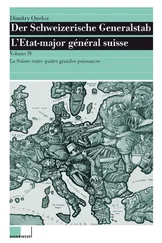Did, did I hurt you, ma’am?
It was the medic. So cheerful.
Why, she said, Why are all these planes coming here? What happened? Natasha pointed to the sky. A smoky black curtain of night had fallen. You could hear the drone of the planes’ engines. You could see the blinking red lights as some of them weaved between clouds. You couldn’t see them, though. You felt them. You felt them in your bones.
That’s help, cheerful medic said.
Seeing the alarm in her eyes, happy medic softened his voice. There was an earthquake, he said. He was about her age, but he tried to speak to her like one would speak to a child. She didn’t like him.
We estimate the earthquake may have destroyed over seventy percent of the buildings in Port-au-Prince, he said. The epicenter was near Carrefour and Léogâne, which are now completely destroyed. The earthquake measured seven point zero on the Richter scale. The force was unheard of for the capital city of a country, particularly a country as small and densely populated as Haiti. We’re afraid thousands of people may have died. Most buildings were flattened or damaged. Even the National Palace and the cathedral. I’m so sorry. We only have aerial and satellite shots of the city so far. In the coming days, hopefully things will reveal themselves to be better than we fear.
The National Palace? she thought, feeling a sharp pinprick in her heart. Alain! She had bid her ex-lover a final farewell in her room in the National Palace that morning, leaving him trapped and helpless. At once, Natasha felt every ounce of energy leave her body. Dante was wrong, she thought. This is what hell is like. In hell, you’re alive but everyone and everything that you love is dead and destroyed, and you don’t know what to do or say. Dante didn’t get it. You had to die or receive this kind of news to truly glimpse hell. Hell to the exiled Florentine was mere homesickness. Hell, Dante, is the physical destruction of your entire hometown, and the death of your lover by your own hands. Natasha, who fancied herself a capable artist in the best traditions of Florence, suddenly could not imagine how art or poetry could come from people who even once in their lives felt the blackness of death so completely envelop them. It’s like being buried alive. Thousands dead. Alain! She wiggled some toes to make sure she was still alive.
She was,
Merde .
On the bright side, the medic continued, taking a break from dressing her wounded legs, we’re here.
The bright side!
He waved his hand to show off the buzzing activity around them. An army base had spontaneously developed near the debris of the national airport. On the horizon of the black sky, a swarm of helicopters, airplanes, and parachutists choked off views of the emerging silver moon. On the ground, things felt lively, even chipper. Soldiers built tents of various sizes, including a large cafeteria, which reminded Natasha how hungry she was. There were civilians in cargo pants and, oddly, hiking boots and even sandals. Their pale faces ranged from middle-aged to impossibly young. They looked scruffy, bespectacled, and keen. Humanitarian aid workers. Had to be. The rest of the foreigners seemed to be mostly military. The military men and women were unlike the soldiers Natasha was accustomed to seeing around town. For one, they sometimes wore non-combat uniforms and carried small guns. They were bright-eyed, open, and friendly while going about their work. This operation seemed to involve a lot of talking into headsets and cell phones and staring at bright laptop screens. Energetic medics fanned out to help the bleeding Haitians who walked on hands, bellies, and feet toward them like believers to John the Baptist on the river Jordan.
The sight that soon riveted Natasha was that of her husband, the President, leading. Of all things. In the middle of a circle of the most grizzled members of the international rescuers, the diminutive fat man seemed to be in charge. Under the yellow lights of military trucks and ambulances, he was absorbing information from engineers and air force commanders and firemen with brand-new tool belts. He kept a thoughtful hand on his chin. He fired questions back at them with orders, directions, and times for follow-up meetings. When he was done talking, the men — and they were all men, a fact that saddened Natasha — dispersed briskly, checking their watches. They seemed keen on doing a good job for Haiti after a disaster whose proportions Natasha found hard to grasp and difficult to even imagine without going glassy-eyed to the point of feeling faint and sleepy.
Are you OK? the medic at her feet said.
She’d forgotten he was there.
That’s my husband, she said, pointing to the President, a bit surprised at how easy it was for her to utter those words for the first time. Was that pride in your voice, Nat? she thought. Is it because the President looked and behaved like he had grown a foot taller since disaster struck? Like he was the president of a nation, a leader of free men and women and children in need of wise leadership? She remembered stories of girlfriends who were actually annoyed after a boyfriend acquired a shot of self-confidence from a success or an event unrelated to being with them. Pity had been Natasha’s default mode for men and their delusions of control… until today.
I know, the medic said.
You know what? she said.
I knew he was your husband.
Stop, she said.
What, did I say something wrong?
No, no, you’ve done a good job. I feel fine. Why don’t you go help that lady over there with the baby? I need to go talk to my husband, if you don’t mind.
D’accord , he said in French to please her.
It worked.
The President stood alone in a spotlight from trucks and ambulances, lights that had been turned into makeshift streetlights. He was on a new phone. The deep creases in his furrowed brow suggested he was receiving bad news. In the past, during these moments, he would stand with his back bent and a pleading look on his face, a cue for Natasha or Reginald, his assistant, to have at the ready a soft chair for him to sit on and a stiff glass of rum for fortification as soon as he got off the phone. They were meant to help refill his spirit, since the effort of not having answers in the face of the enormous problems around him taxed his intellectual and emotional capabilities. Oh, ce peuple , he would say afterward, Ils me laissent à bout de force .
Tonight, he stood erect while wearing a broken watch, one suede loafer, and a ruined suit jacket with only one sleeve left. Not to mention having what looked like a broken jaw. He stood erect but his face and spirit radiated empathy. Compassion. Generosity. Why now? Finding the courage gene at the one moment in his life when he would be forgiven for not having any. Who was this man? Natasha thought, while limping toward him.
His lined yet newly youthful brown face broke out in a wide smile when he turned to her. Mon amour , he said, before wrapping her warmly in his arms. He was calm and steady, and he hugged her exactly how she needed to be hugged. She let herself go like a basket case again.
What are we going to do? she asked him once her sobbing had slowed to a stream. For the first time in her driven and imaginative young life, she really had no idea what to do next. We sleep, he said. Tomorrow will be a better day. It has no choice.
He led her by hand to their new home, a tent on the tarmac. It was military green, about two by four square meters. It featured a cot, a foldable chair, and a table with a small lamp. I’ll sleep on the floor, the President said. The pre-earthquake President would have tried to sleep on the cot with her or have made a lame joke about having to give up the cot. This new President sat her down on the cot gently. When he tried to pull away from her, she tugged at him, and, instead, he sat close to her. Natasha held on to the arm he had around her.
Читать дальше












